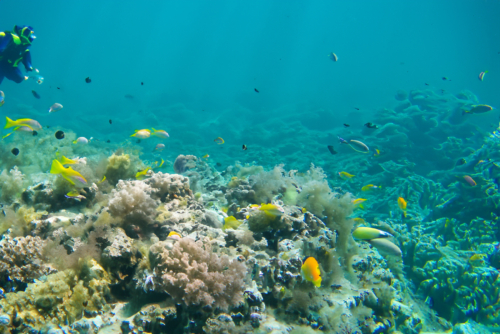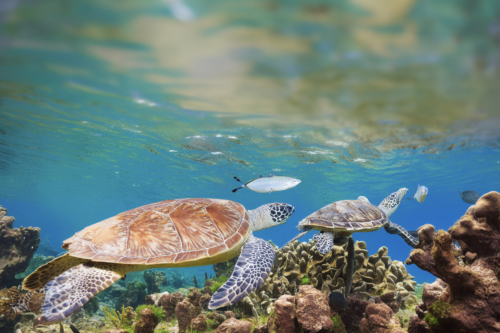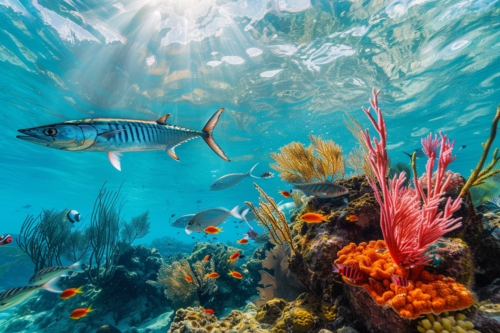The Impact of Bonaire Reef Renewal on marine biodiversity
Bonaire Reef Renewal is revitalizing coral reefs through innovative restoration techniques and community involvement. The Reef Renewal Foundation Bonaire’s efforts focus on enhancing marine biodiversity, ensuring the resilience of these vital ecosystems, and securing a sustainable future for the Dutch Caribbean.
The turquoise waters surrounding Bonaire are a treasure trove of marine biodiversity, home to vibrant coral reefs that have enchanted divers and marine enthusiasts for decades. However, like many coral reefs around the world, Bonaire’s underwater ecosystems face growing threats from climate change, pollution, and human activities. Enter the Reef Renewal Foundation Bonaire (RRFB), a beacon of hope in the battle to restore and preserve these crucial ecosystems. This article delves into the remarkable efforts of RRFB, exploring the techniques they employ, the significance of their work, and the impact on both the environment and the community.
Mission and vision of Bonaire Reef Renewal
At the heart of Bonaire reef renewal lies the mission of the Reef Renewal Foundation Bonaire. Their goal? To restore Bonaire’s coral reefs to their former glory. RRFB’s mission is clear: to rehabilitate and protect coral reefs while promoting marine biodiversity. They focus on sustainable practices that ensure long-term success. But it’s not just about planting corals; it’s about cultivating a future where these reefs thrive independently.
Innovative coral restoration techniques
One of the cornerstones of Bonaire reef renewal is the use of in-situ coral nurseries. These underwater nurseries are like coral gardens, where young corals are nurtured before being transplanted to damaged reef areas. The nursery environment allows for various propagation methods, ensuring a diverse and resilient coral population.
Coral nurseries
In-situ coral nurseries are a crucial part of the restoration process. Here, corals grow in a controlled environment, safe from the harsh impacts of climate change and ocean pollution. By using these nurseries, RRFB can monitor growth rates, test different propagation techniques, and select the healthiest corals for reef restoration.

Coral fragmentation and outplanting
Once the corals have reached a certain size, they are fragmented and outplanted onto damaged reefs. This process might sound delicate, but it’s highly effective. Fragmentation involves breaking corals into smaller pieces, which are then transplanted onto the reef. This technique accelerates growth and increases the chances of reef recovery. The results have been promising, with many of these outplanted corals thriving, adding new life to once-degraded areas.
The importance of genetic diversity and resilience
In the context of Bonaire reef renewal, genetic diversity plays a vital role. Healthy reefs are not just populated by corals; they are home to a wide variety of species that contribute to the overall resilience of the ecosystem. Genetic diversity ensures that these ecosystems can withstand environmental changes, such as those brought about by climate change.
Genetic diversity: a pillar of reef survival
Coral reef ecosystems are incredibly complex, with each species playing a specific role. The more genetically diverse the coral population, the better it can adapt to changes in its environment. RRFB prioritizes genetic diversity in their restoration efforts, ensuring that the corals they cultivate are resilient enough to face future challenges.
Gene banks and assisted recruitment
To safeguard this genetic diversity, RRFB has established gene banks. These banks store genetic material from various coral species, providing a safety net for future restoration projects. Additionally, assisted recruitment techniques help introduce new genetic material to the reefs, further enhancing their resilience.
Community involvement: a key to success
Bonaire reef renewal isn’t just about corals; it’s about people. RRFB has forged strong partnerships with local dive shops, educational institutions, and the broader community. By involving the community in their efforts, RRFB ensures that the benefits of reef restoration are felt across the island.
Partnerships with Local dive schools and educational institutions
Local dive schools play a crucial role in Bonaire reef renewal. They provide manpower, expertise, and a direct connection to the ocean. Educational institutions, meanwhile, help raise awareness about the importance of coral reef ecosystems and inspire the next generation of marine conservationists.
Youth participation and awareness
Involving young people in reef renewal activities fosters a sense of ownership and responsibility. Through educational programs and hands-on activities, RRFB engages Bonaire’s youth, teaching them the value of conservation and the importance of protecting their natural heritage.

Collaboration with researchers
RRFB also collaborates with researchers from around the world, bringing the latest scientific knowledge to their restoration projects. This collaboration ensures that the techniques used are based on sound science and that the results are continuously monitored and improved.
Impact on the Dutch Caribbean
The efforts of Bonaire reef renewal have far-reaching implications, not just for the island itself but for the entire Dutch Caribbean. Coral reefs are vital to the ecological and economic well-being of these islands.
Ecological significance of coral reefs
Coral reef ecosystems are the lifeblood of marine biodiversity. They provide habitat and food for countless species, protect coastlines from erosion, and support fisheries that local communities depend on. Without these reefs, the marine ecosystem would collapse.
Economic impact
The economic impact of coral reef degradation is significant. Tourism, particularly dive tourism, is a major industry in Bonaire. Healthy reefs attract visitors from around the world, providing income and jobs for the local population. Conversely, degraded reefs could lead to a decline in tourism, affecting the island’s economy.
The importance of restoration for the future
Restoring Bonaire’s coral reefs is not just an environmental necessity; it’s an investment in the future. By ensuring the health and resilience of these ecosystems, Bonaire can continue to thrive as a hub of marine biodiversity and a tourist destination.

The Future of Bonaire Reef Renewal
In summary, Bonaire reef renewal is a shining example of how dedicated efforts can make a tangible difference. The work of RRFB has not only breathed new life into the coral reefs but also inspired a community to take action. As we look to the future, continued support and collaboration will be key to ensuring the success of these efforts. By maintaining a focus on genetic diversity, innovative restoration techniques, and community involvement, Bonaire’s reefs have a fighting chance to thrive for generations to come.